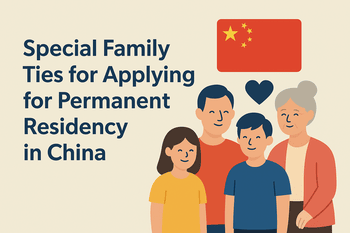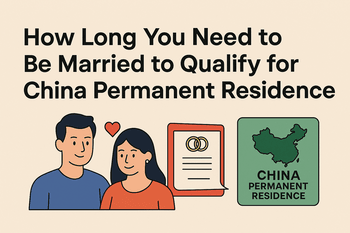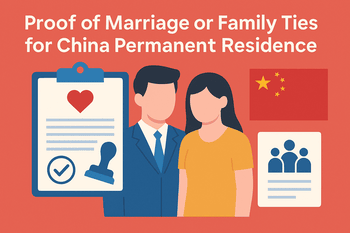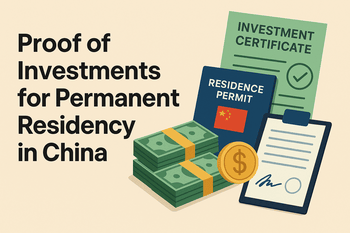
Navigating the immigration landscape can be a daunting task for anyone, but for overseas Chinese considering a move to China, it can be particularly complex.
In recent years, China has become an increasingly attractive destination for overseas Chinese looking to reconnect with their cultural roots, explore new opportunities, or contribute to the country’s dynamic growth.
Understanding the immigration status and advantages available to overseas Chinese in China is crucial for those considering such a move.
The Concept of Overseas Chinese
Before delving into the specifics of immigration status and advantages, it’s important to understand who overseas Chinese are.
The term “overseas Chinese” refers to individuals of Chinese descent who reside outside of China, typically in other countries around the world. This diverse group includes individuals of varying nationalities, ethnic backgrounds, and cultural identities, united by their Chinese heritage.
Immigration Status for Overseas Chinese in China
Permanent Residence (PR) Permit
One of the most significant immigration statuses available to overseas Chinese in China is the Permanent Residence (PR) Permit. This permit, previously known as a “green card” but now called “5-star card” grants holders the right to reside in China indefinitely and enjoy many of the same benefits and privileges as Chinese citizens.
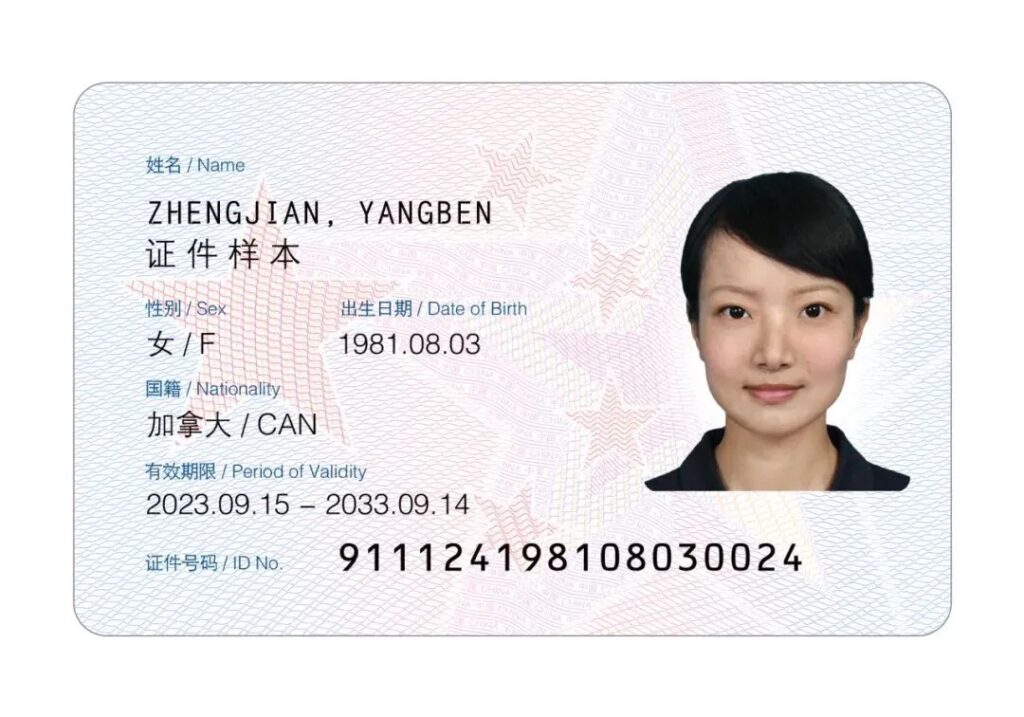
Obtaining a PR Permit in China is not an easy feat and typically requires meeting specific criteria set by the Chinese government. However, overseas Chinese may find the process slightly more streamlined compared to foreign nationals, given their ethnic and cultural ties to China.
Below is a detailed guide to the different routes, qualifications, and processes for applying for permanent residence in China, along with FAQs for each route.
1. Family Reunion Route
Qualifications:
- Spouse of a Chinese citizen: Married for at least 5 years, lived in China for at least 5 consecutive years (with at least 9 months of residence each year), and have stable income and accommodation.
- Unmarried children under 18 years old: With at least one Chinese parent.
- Elderly dependent parents (over 60 years old): Whose children are Chinese citizens, have no direct relatives abroad, and have lived in China for at least 5 consecutive years.
Process:
- Prepare documents: Marriage certificate, residence permit, proof of income, proof of accommodation, etc.
- Submit application: Apply at the local Public Security Bureau (PSB) Exit and Entry Administration.
- Interview: May be required to attend an interview.
- Approval: Application will be reviewed and approved by relevant authorities.
FAQ:
- Q: What if I have not been married for 5 years?
- A: You need to meet the 5-year marriage requirement; otherwise, you will not qualify under the family reunion route.
- Q: Can I apply if I don’t live in China continuously?
- A: No, you need to have lived in China continuously for at least 5 years with at least 9 months each year.
2. Employment Route
Qualifications:
- Senior management or technical personnel: Working in China for at least 4 consecutive years, with at least 3 years of residence each year, stable income, and tax records.
- Contributors to important fields: Individuals who have made significant contributions to China’s economic, scientific, technological, or cultural fields.
Process:
- Prepare documents: Employment contract, proof of position, tax records, proof of residence, etc.
- Submit application: Apply at the local PSB Exit and Entry Administration.
- Interview: May be required to attend an interview.
- Approval: Application will be reviewed and approved by relevant authorities.
FAQ:
- Q: What kind of jobs qualify for this route?
- A: High-level management or technical positions, especially in sectors deemed important by the Chinese government.
- Q: Is there a minimum salary requirement?
- A: Yes, the income should be stable and meet the local standards, often reflected in your tax payments.
3. Investment Route
Qualifications:
- Investors: Individuals who have invested at least $500,000 USD in a business in China, managed it personally for at least 3 consecutive years, and have a good tax record.
Process:
- Prepare documents: Investment proof, business registration, tax records, etc.
- Submit application: Apply at the local PSB Exit and Entry Administration.
- Interview: May be required to attend an interview.
- Approval: Application will be reviewed and approved by relevant authorities.
FAQ:
- Q: Does the investment need to be in a specific industry?
- A: Generally, there is no specific industry requirement, but investments in key industries may be prioritized.
- Q: Can the investment be in multiple businesses?
- A: The investment typically needs to be concentrated in a single business to meet the criteria.
4. Special Contributions Route
Qualifications:
- Highly talented individuals: Recognized in their field (e.g., Nobel Prize winners, prominent scientists, and artists) or individuals who have made exceptional contributions to China.
Process:
- Prepare documents: Proof of achievements, recommendation letters, etc.
- Submit application: Apply at the local PSB Exit and Entry Administration.
- Interview: May be required to attend an interview.
- Approval: Application will be reviewed and approved by relevant authorities.
FAQ:
- Q: What kind of achievements are considered exceptional?
- A: Significant contributions that have been widely recognized at a national or international level.
- Q: Do I need a recommendation from a Chinese institution?
- A: It is highly beneficial to have endorsements from relevant Chinese institutions or authorities.
5. Study or Research Route
Qualifications:
- Foreign students or researchers: Who have obtained a doctoral degree from a Chinese university and have worked continuously in China for at least 3 years.
Process:
- Prepare documents: Degree certificate, proof of employment, research accomplishments, etc.
- Submit application: Apply at the local PSB Exit and Entry Administration.
- Interview: May be required to attend an interview.
- Approval: Application will be reviewed and approved by relevant authorities.
FAQ:
- Q: Does the work experience need to be in the same field as the degree?
- A: Yes, the work experience should be relevant to the field of study.
- Q: Can I apply immediately after graduation?
- A: You need at least 3 years of work experience in China post-graduation.
General FAQ for All Routes:
- Q: How long does the application process take?
- A: It typically takes 6 months to 1 year for the application to be processed.
- Q: Can I apply for permanent residence if I do not meet any of the specific route qualifications?
- A: No, you must meet the qualifications of one of the specified routes to apply for permanent residence.
- Q: What documents are generally required?
- A: Common documents include a valid passport, residence permit, proof of qualifications (e.g., marriage certificate, employment contract), tax records, proof of accommodation, and any other documents specific to the route you are applying through.
Long-Term Residence Permit
For overseas Chinese who may not qualify for a PR Permit or prefer a more flexible immigration status, the Long-Term Residence Permit is another option to consider. This permit allows holders to reside in China for extended periods, typically ranging from one to five years, depending on individual circumstances and visa regulations.
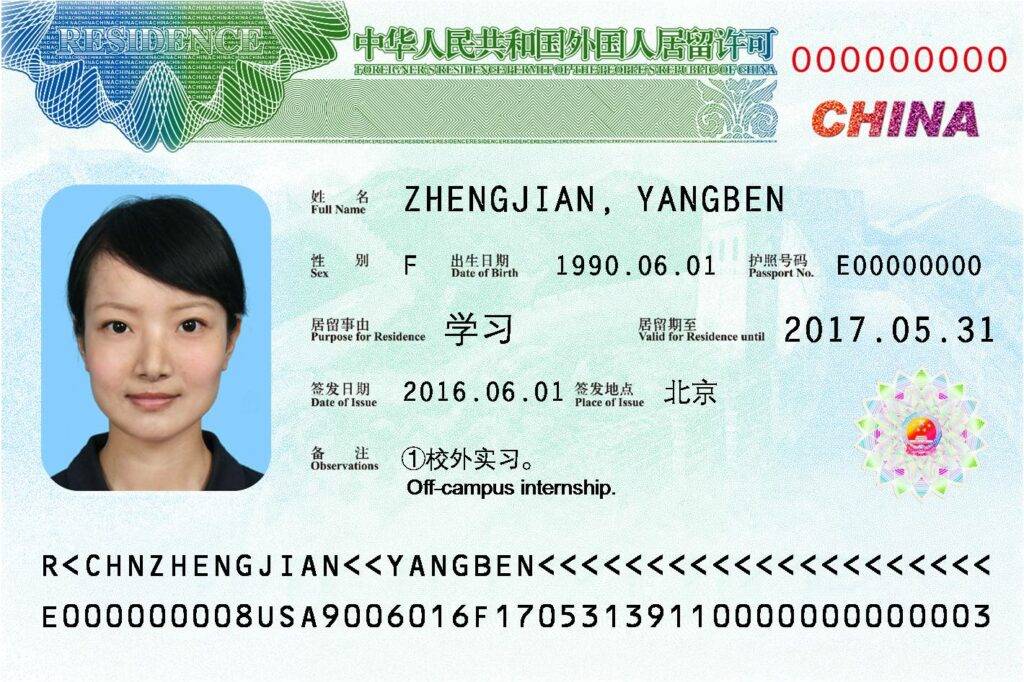
While the Long-Term Residence Permit does not offer the same level of permanence as a PR Permit, it provides overseas Chinese with the flexibility to live and work in China without the constraints of shorter-term visas.
Advantages of Immigrating to China as an Overseas Chinese
Cultural Connections and Integration
One of the most significant advantages of immigrating to China as an overseas Chinese is the opportunity to reconnect with one’s cultural heritage and ancestral roots. China’s rich history, diverse traditions, and vibrant cultural landscape offer a unique environment for overseas Chinese to explore and embrace their identity.
Business and Career Opportunities
China’s rapid economic development and status as a global economic powerhouse present numerous business and career opportunities for overseas Chinese.
Whether starting a new venture, pursuing employment opportunities, or expanding existing business interests, China offers a dynamic and thriving market with endless possibilities for growth and success.
Access to Social Services and Benefits
As holders of PR Permits or Long-Term Residence Permits, overseas Chinese in China are entitled to access a range of social services and benefits, including healthcare, education, and social welfare programs.
These benefits contribute to a higher quality of life and greater peace of mind for overseas Chinese and their families living in China.
Conclusion: Embracing Opportunities in China
In conclusion, understanding the immigration status and advantages available to overseas Chinese in China is essential for those considering a move to the country.
From PR Permits to Long-Term Residence Permits, overseas Chinese have several options for establishing a presence in China and embracing the opportunities it offers.
Whether reconnecting with cultural roots, pursuing business ventures, or seeking new career opportunities, China provides a welcoming environment for overseas Chinese to thrive and succeed.
